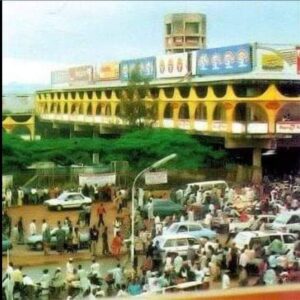To say there is a deep mutual suspicion and resentment on which Plateau State is centred largely along the boundaries of Christianity and Islam, is to equally say, the sun rises from the east and settles in the west. It is unequivocally a statement of fact. This is a fallout of a very long history of ethno-religious clashes in the state with its roots traced to as far back as 2010.
Since then, no government on the plateau has been able to make any effort to deconstruct the minds of the people away from whatever residue of religious misgivings that may still be present on their minds. Left with that bitter taste on their tongue and huge scar on their minds, whatever action taken or conceived by whoever on the plateau, irrespective of how lofty or otherwise, it will first be subjected through a religious litmus apparatus. Archaic sentiments like who conceived the idea, what’s his/her religious lineage, where will such a project be situated, was there an equivalent of such project on the other side of the divide?
Even if all these questions scale through, which will not, there is always the position of major religious leaders in the state on such a take which in most instances differs against the government or their religion.
That is the quagmire Plateau State and its government found themaelves with regards to the reconstruction of the famous Jos main market and the contract agreement it entered into with Jaiz Bank. The resentment exhibited by some people, including those who should know better, can be safely attributed to a barrage of deep anger which can not be isolated from the perceived misgivings that fan the ethno-religious crisis in time past in the state.
For lack of sufficient information on the part of the state government on the deal with Jaiz, politicians, clerics and conflict entrepreneurs capitalised on that gulf to misinform the public. The misinformation has further magnified the state of misgivings earlier held by the people to view what otherwise could have been a lofty dream as evil
The outright rejection of the Jaiz Bank contract to reconstruct the market, moribund for 21 years, was just a signature of how highly intolerant the state has become religiously. On the surface, it may seem callous for citizens to reject the reconstruction of a market lying fallow for over two decades, with each successive regime in the state alluding the situation to paucity of funds for its inability to awaken a market considered as a revenue generating plant.
Now here is the deal. The state government has sourced Jaiz Bank operating with the principles of halal economy and are ready to invest in the construction of that market without a single kobo coming from the government. According to the contractual agreement, 60% of the over 3,500 shops will be sold by the bank so as to scoop its investment, with 40% of the shops owned by the state government. Also as part of the lease agreement, 40 years after, the whole of the market shops (3,500) would become the full property of the state government irrespective of whether or not the shops were sold to you by Jaiz or through a secondary source.
Naturally, that shouldn’t constitute any area of friction. But for lack of sufficient information on the part of the state government on the deal with Jaiz, politicians, clerics and conflict entrepreneurs capitalised on that gulf to misinform the public. The misinformation has further magnified the state of misgivings earlier held by the people to view what otherwise could have been a lofty dream as evil.
Jaiz Bank, in the whole of the arrangement, is now being portrayed as an Islamic bank, a willing tool a governor already considered as a “sell-out” is using to finally take over the economy of the state and hand it over to Muslims. This is what absence of a timely and sufficient information could cause in the mist of a people polarised along Christianity/Islam boundaries.

The rejection of Jaiz’s intervention is in a way a referendum against a government that has spent so much on security in the state. It was a loud chorus of ‘you have failed’ and very credibly in that crusade. On the plateau today, as simple as a mode of dressing could just be a license for you to be marked for death.
It is how pathetic a state once called the “Home of PEACE and tourism” has slid into.
* Mr. Gowong is a public servant resident in Abuja


